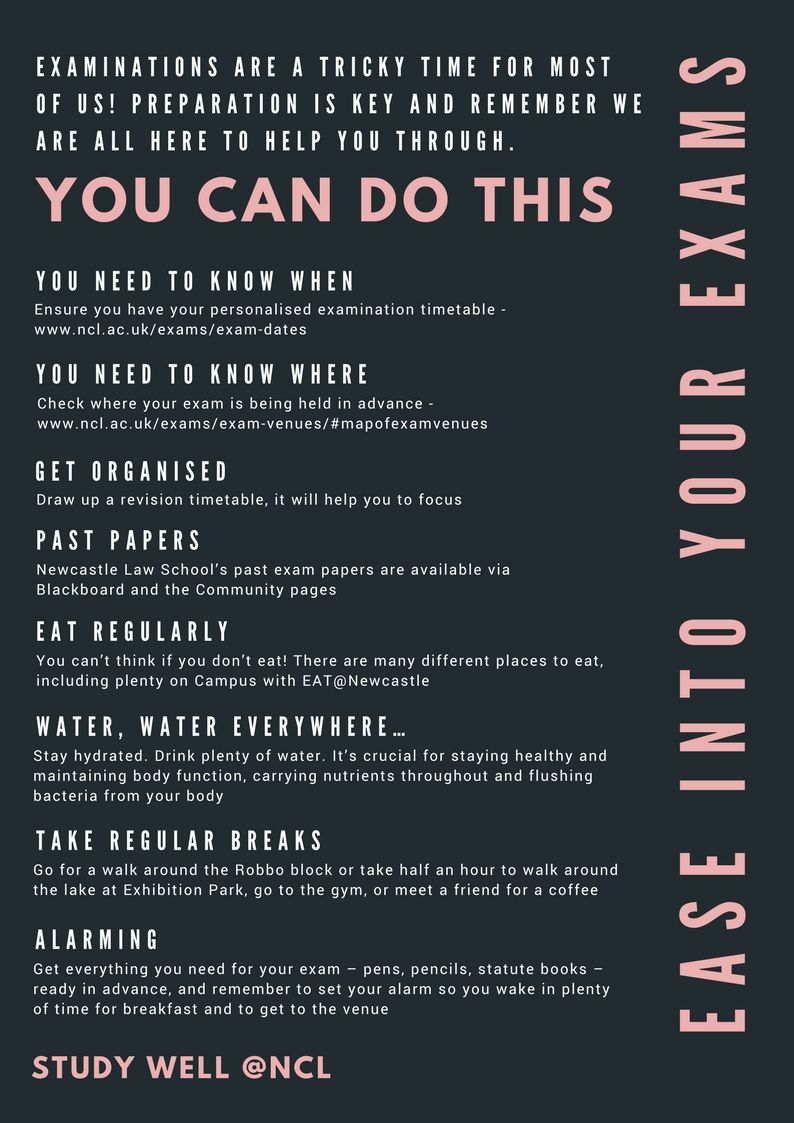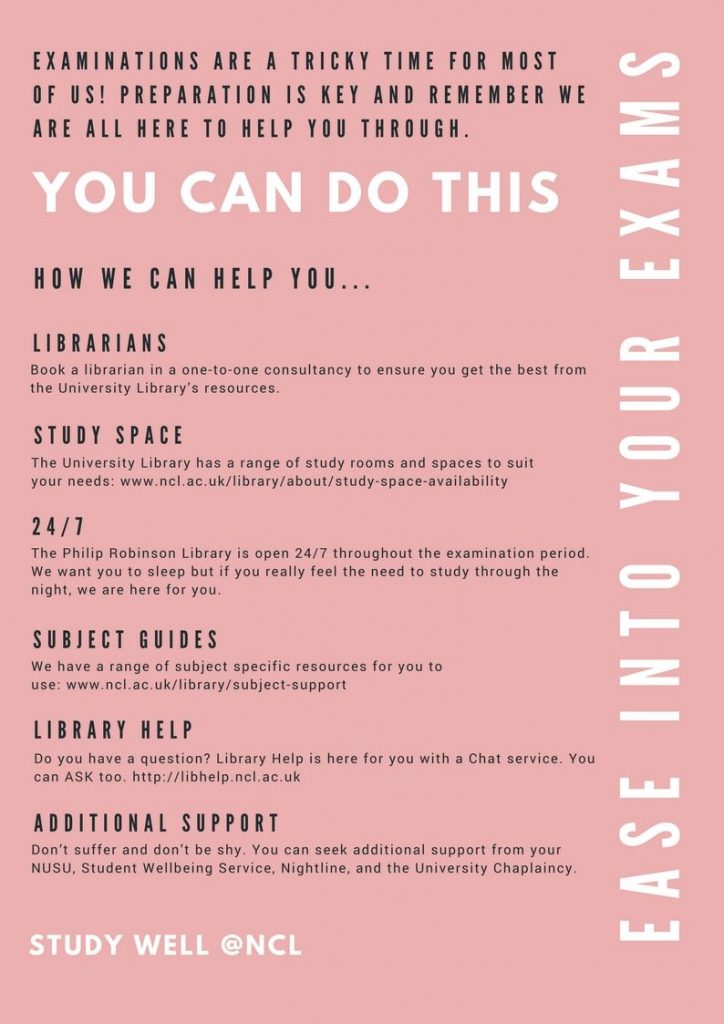
This time of year is normally one of the busiest for the Libraries on campus. Instead, the Libraries are currently physically closed and both revision and exams are taking place at homes across the country (and possibly further afield!). While this ‘new normal’ might seem overwhelming at first, in many ways, it’s business as usual. Read on to find out how we can all work together to ensure you have the best possible revision and exam experience.
How the Library can help
First and foremost, Library services haven’t stopped while the University is closed, they’re simply operating differently right now. You’re still able to organize an online one-to-one appointment with your Liaison librarian or request that the Library purchase an e-book to assist your studies.
Your subject-specific guide also contains links to useful journals, databases and eBook collections that are tailored for your course. You may also find it helpful to browse through a list of newly-acquired online resources that the Library have purchased to better enable your studies from home.
There are a number of MCQ (multiple choice question) books available to read online to complement your revision. They cover subjects including: paediatrics, neurology and physiology.
You may also like to look into the services offered by the Writing Development Centre (WDC). Their website has helpful guidance on preparing for exams and what do to during an exam. You can also arrange a one-to-one consultation with a WDC tutor via Zoom to discuss exam and revision strategies.
Library Help remains available 24/7 to assist with your queries – please send them in via email or live chat. We are also regularly updating Library FAQs to bring you the most up-to-date information. (Hint: if you filter the FAQs to show ‘remote services temporary FAQ’, you’ll only be shown the newest Library FAQs.)
How the University can help
The Academic Skills Kit (ASK) is full of useful advice, covering all aspects of study from how to manage your time effectively to reading and note-taking. ASK also has useful guidance on exams and revision, including where to go for academic advice or personal support.
Following the announcement of lockdown, ASK have made some new resources to assist with online examinations. These are broken down into helpful categories: how to revise for an online exam, what to do before an online exam and exam technique. While you will get details from your School about the specific changes to your exam(s), these pages have really helpful advice on preparing for and succeeding in online assessment.
Before taking an online examination, you may want to look at Newcastle University IT Service’s (NUIT) remote working toolkit. This website contains loads of helpful information, including how to access your University email and documents away from home, as well as how to download a copy of Microsoft Office 365 Professional Plus for your home device.
How you can help

Choose an area in your home to work in that’s best suited to your needs. This might be a bedroom, kitchen or office space. You may want to consider making some adjustments to your existing desk (or kitchen table!) to avoid causing an injury. If possible, choose to work in an area that has plenty of natural light and is well-ventilated.
Build yourself a realistic revision planner, with plenty of breaks factored in. You won’t be able to revise everything in one day so breaking down topics into manageable chunks is essential. Regular exercise, a balanced diet and a good night’s sleep are also key to revision success.
Remember to take regular study breaks to stay hydrated, get fresh air and clear your mind. You’re unlikely to revise effectively without regular breaks and time away from your work. There are a number of activities and resources on the Library’s website for things you can do while taking a break. These include seated desk yoga, colouring in sheets and mindfulness exercises.
If you are feeling overwhelmed, please contact the University Student Health and Wellbeing services or the Student Union’s Mental Health & Wellbeing site. These services are still available despite the University being physically closed.
From all of us in the Library, good luck and study well!







